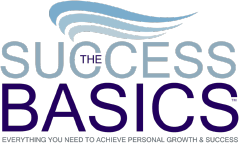Failure is an inevitable part of life and a crucial component of growth and success. While setbacks can be disheartening, learning how to bounce back from failure can turn these experiences into valuable lessons and opportunities for improvement. Here are effective strategies to help you recover from failure and come back stronger than ever.
The first strategy is to reframe your perspective on failure. Instead of viewing failure as a negative outcome, see it as a learning experience. Every setback provides valuable insights into what went wrong and what can be improved. This shift in mindset helps you approach failure with curiosity and openness rather than fear and disappointment.
Ask yourself what lessons you can take away from the experience and how you can apply them to future endeavors. By embracing failure as a stepping stone to success, you build resilience and a growth mindset.
The first strategy is to reframe your perspective on failure. Instead of viewing failure as a negative outcome, see it as a learning experience. Every setback provides valuable insights into what went wrong and what can be improved. This shift in mindset helps you approach failure with curiosity and openness rather than fear and disappointment.
Ask yourself what lessons you can take away from the experience and how you can apply them to future endeavors. By embracing failure as a stepping stone to success, you build resilience and a growth mindset.
The second strategy is to practice self-compassion. It's easy to be overly critical of yourself after a failure, but self-compassion is crucial for recovery. Treat yourself with the same kindness and understanding you would offer a friend in a similar situation. Acknowledge your efforts and recognize that failure is a natural part of the learning process. By being gentle with yourself, you can avoid the negative spiral of self-blame and instead focus on constructive steps to move forward. Self-compassion also boosts your emotional well-being, making it easier to maintain a positive outlook.
The third strategy is to set realistic and achievable goals. After a failure, it can be tempting to either give up entirely or set overly ambitious goals in an attempt to compensate. Instead, break down your larger objectives into smaller, manageable steps. Setting realistic goals allows you to make steady progress and regain confidence. Celebrate small victories along the way, as these build momentum and reinforce your commitment to your goals. By taking incremental steps, you create a sustainable path to success and reduce the risk of future setbacks.
The third strategy is to set realistic and achievable goals. After a failure, it can be tempting to either give up entirely or set overly ambitious goals in an attempt to compensate. Instead, break down your larger objectives into smaller, manageable steps. Setting realistic goals allows you to make steady progress and regain confidence. Celebrate small victories along the way, as these build momentum and reinforce your commitment to your goals. By taking incremental steps, you create a sustainable path to success and reduce the risk of future setbacks.
The fourth strategy is to seek support and feedback. Surround yourself with a supportive network of friends, family, and mentors who can offer encouragement and advice. Sharing your experiences with others can provide new perspectives and insights that you might not have considered.
Constructive feedback is particularly valuable, as it helps you identify areas for improvement and develop better strategies. Donít hesitate to reach out for help when needed; collaboration and external input can be instrumental in overcoming obstacles and achieving your goals.
The fifth strategy is to develop resilience through self-care. Building resilience involves taking care of your physical, emotional, and mental well-being. Engage in activities that help you relax and recharge, such as exercise, meditation, hobbies, or spending time in nature. Maintaining a healthy lifestyle with balanced nutrition, regular sleep, and stress management techniques enhances your ability to cope with challenges. Resilience is the ability to bounce back from adversity, and self-care practices are essential for maintaining the strength and stability needed to persevere.
Constructive feedback is particularly valuable, as it helps you identify areas for improvement and develop better strategies. Donít hesitate to reach out for help when needed; collaboration and external input can be instrumental in overcoming obstacles and achieving your goals.
The fifth strategy is to develop resilience through self-care. Building resilience involves taking care of your physical, emotional, and mental well-being. Engage in activities that help you relax and recharge, such as exercise, meditation, hobbies, or spending time in nature. Maintaining a healthy lifestyle with balanced nutrition, regular sleep, and stress management techniques enhances your ability to cope with challenges. Resilience is the ability to bounce back from adversity, and self-care practices are essential for maintaining the strength and stability needed to persevere.
PUBLISHED: MAY 1, 2020
Strategies to Bounce Back and Turn Setbacks into Success
Why Cultivating Confidence is Your Key to Success and Fulfillment
Confidence is a vital attribute that can significantly influence your personal and professional life. It allows you to take risks, pursue your goals, and handle challenges with grace.
Success is not a matter of luck or coincidence but rather the result of consistent habits and behaviors that drive progress and achievement.

"There are many obstacles and many battles that you will have to fight during your lifetime."
How to Rebuild Your Career and Financial Stability After a Job Loss
Let the Power of Positive Thinking Transform Your Life from the Inside Out



Four Essential Habits for Achieving Success




Tips to Help You Overcome Bad Financial Mistakes
A Guide to Understanding and Conquering Your Fears



The Importance of Building Healthy Relationships
Dress for Success and Present Your Best Self
Manage Your Time Effectively and Achieve Your Goals
The sixth strategy is to maintain a proactive and solution-oriented mindset. Instead of dwelling on what went wrong, focus on what you can do to rectify the situation and prevent similar failures in the future. Analyze the failure objectively, identify the factors that contributed to it, and develop an action plan to address them. Being proactive empowers you to take control of the situation and turn it around. By focusing on solutions rather than problems, you cultivate a forward-thinking approach that drives progress and innovation.
In conclusion, bouncing back from failure is a vital skill that can transform setbacks into stepping stones for success. By reframing your perspective on failure, practicing self-compassion, setting realistic goals, seeking support and feedback, developing resilience through self-care, and maintaining a proactive mindset, you can recover from failures more effectively and emerge stronger. Remember that failure is not the end but a part of the journey toward growth and achievement. Embrace these strategies, and youíll find that every failure brings you one step closer to your ultimate success.
In conclusion, bouncing back from failure is a vital skill that can transform setbacks into stepping stones for success. By reframing your perspective on failure, practicing self-compassion, setting realistic goals, seeking support and feedback, developing resilience through self-care, and maintaining a proactive mindset, you can recover from failures more effectively and emerge stronger. Remember that failure is not the end but a part of the journey toward growth and achievement. Embrace these strategies, and youíll find that every failure brings you one step closer to your ultimate success.